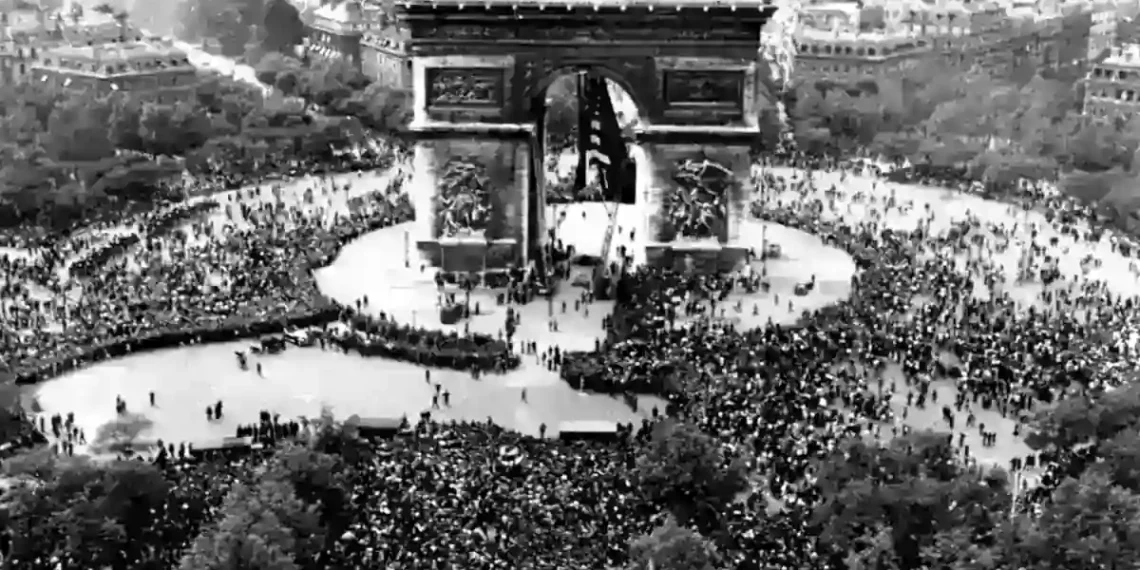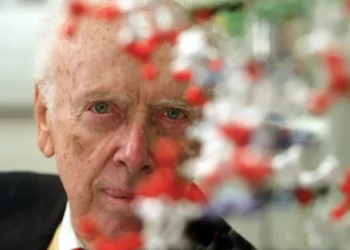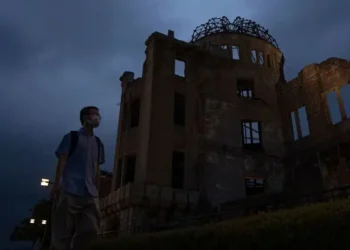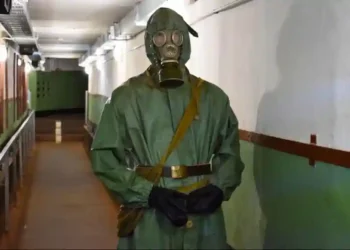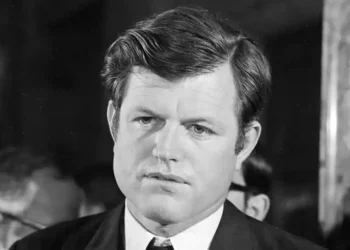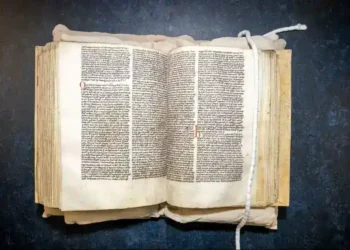V-E Day Turns 80: Europe Marks WWII Victory Amid Today’s Unsettling Parallels
LONDON — Eighty years ago, Europe erupted in celebration as World War II came to an end on the continent. But as the world marks Victory in Europe (V-E) Day this year, the joy is tempered by a sense of unease, shaped by the echoes of past conflict now resonating in present-day realities.
May 8, 1945, signaled the surrender of Nazi Germany and the collapse of Adolf Hitler’s regime after years of war, genocide, and devastation. It was a day that brought hope to millions — and it’s still commemorated across the continent with parades, services, and solemn remembrance.
Yet as Europe honors the sacrifices of the past, the ongoing war in Ukraine, the rise of far-right movements, and increasing global tensions cast a long shadow over today’s celebrations.
A Day That Changed History
German Foreign Minister Johann Wadephul marked the occasion by acknowledging the deep wounds of the past — and the duty that comes with remembering.
“Hardly any day has shaped our history as much as May 8, 1945,” he said. He credited the Allies for freeing Germany from the grip of Nazism and emphasized that the memory of WWII’s atrocities compels modern Europe to stand firmly for peace and freedom.
The end of WWII created the conditions for an unprecedented period of European unity — culminating in the formation of the European Union, which was awarded the Nobel Peace Prize in 2012. But now, even that hard-won peace feels fragile.
A Fragile Peace in Modern Europe
The war in Ukraine — Europe’s largest land conflict since WWII — rages on more than two years after Russia’s full-scale invasion. And democratic values within the EU are facing new challenges from the rise of hard-right political movements.
Polish Prime Minister Donald Tusk, speaking at a memorial in the Netherlands, warned that “Europe’s carefree comfort” has ended. “This is the time for European mobilization around our fundamental values and our security,” he said.
Even NATO, the transatlantic alliance that helped preserve peace for decades, is feeling internal pressure and political strain.
America’s Role and Reflection
The United States played a pivotal role in ending the war in Europe — especially through the D-Day landings in Normandy, France, in June 1944. Those actions paved the way for the final defeat of Nazi Germany.
On Wednesday, U.S. President Donald Trump declared Thursday a day to celebrate American victory in WWII, saying, “We are going to start celebrating our victories again!”
While WWII officially continued in the Pacific for months after V-E Day, the legacy of that victory — and America’s contributions — remain central to modern reflections.
Taiwan Echoes the Warning
In a new twist this year, Taiwan joined V-E Day commemorations for the first time. But its focus was not on past enemies — rather, on present threats.
Taiwanese President Lai Ching-te issued a pointed message amid rising tensions with China, which claims the island as its territory.
“Military aggression against another country is an unjust crime that is bound to fail,” Lai said. He compared Taiwan and Europe’s shared challenge of facing down a “new authoritarian bloc.”
Commemorations Across the Continent
Across Europe, events this week are blending remembrance with resolve.
In London, Prime Minister Keir Starmer said the lessons of WWII are more relevant than ever: “The idea that this was all just history and it doesn’t matter now is completely wrong,” he said. “Freedom and democracy matter today.”
The U.K. will mark the day with a special service at Westminster Abbey and a major concert at Horse Guards Parade for 10,000 attendees.
In Paris, French President Emmanuel Macron is expected to lead a ceremony at the Arc de Triomphe’s Tomb of the Unknown Soldier. In Berlin, German Chancellor Friedrich Merz will lay a wreath at the national memorial for victims of war and tyranny — a powerful reminder of how far Germany has come since 1945.
Russia Marches to Its Own Beat
In contrast, Russia — which suffered immense losses during WWII and played a major role in defeating Nazi Germany — will observe its Victory Day a day later, on May 9.
President Vladimir Putin is set to oversee a massive military parade in Moscow’s Red Square, symbolizing how Russia’s view of WWII — and of itself — remains out of sync with much of Europe, especially amid its ongoing war in Ukraine.
A Day of Dual Meanings
While V-E Day remains a powerful symbol of triumph over tyranny, this year’s anniversary carries a dual message — a celebration of peace, and a sober reminder that peace must be protected.
As Europe honors the past, it must also confront the uncertainty of the present — and the challenges of preserving the values that emerged from its darkest hour.
This article was rewritten by JournosNews.com based on verified reporting from trusted sources. The content has been independently reviewed, fact-checked, and edited for accuracy, neutrality, tone, and global readability in accordance with Google News and AdSense standards.
All opinions, quotes, or statements from contributors, experts, or sourced organizations do not necessarily reflect the views of JournosNews.com. JournosNews.com maintains full editorial independence from any external funders, sponsors, or organizations.
Stay informed with JournosNews.com — your trusted source for verified global reporting and in-depth analysis. Follow us on Google News, BlueSky, and X for real-time updates.
